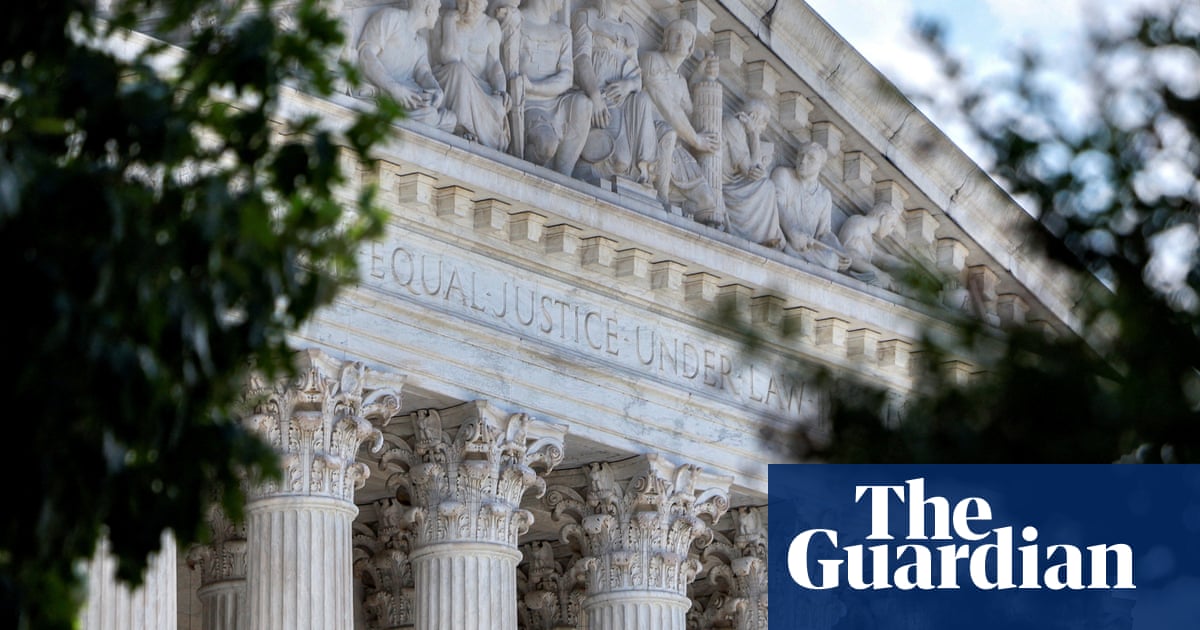TheUS supreme courton Friday announced it would allow theTrump administrationto revoke the temporary legal status of hundreds of thousands of Venezuelan, Cuban, Haitian and Nicaraguan migrants living in the United States, bolstering the Republican president’s drive to step up deportations.
The court put on holdBoston-based US district judge Indira Talwani’s order halting the administration’s move to end theimmigrationhumanitarian “parole” protections granted to 532,000 people by Trump’s predecessor, Joe Biden, potentially exposing many of them to rapid removal from the country, while the detailed case plays out in lower courts.
As with many of the court’s emergency orders – after rapid appeals brought the case to their bench – the decision issued on Friday was unsigned and gave no reasoning. However two of the court’s three liberal-leaning justices,Ketanji Brown JacksonandSonia Sotomayor, publicly dissented.
The court “botched” its assessment of whether the administration was entitled to freeze Talwani’s decision pending the litigation, Jackson wrote in an accompanying opinion.
The outcome, Jacksonwrote, “undervalues the devastating consequences of allowing the government to precipitously upend the lives and livelihoods of nearly half a million noncitizens while their legal claims are pending”.
Jackson also said that “it is apparent that the government seeks a stay to enable it to inflict maximum pre-decision damage.”
She added that those living under parole protections in this case now face “two unbearable options”.
One option is to “elect to leave the United States and thereby, confront ‘dangers in their native countries,’ experience destructive ‘family separation’ and possibly ‘forfeit any opportunity to obtain a remedy based on their … claims”, Jackson wrote.
The other option is that they could remain in the US after parole termination and “risk imminent removal at the hands of government agents, along with its serious attendant consequences”.
To Jackson, “either choice creates significant problems for respondents that far exceed any harm to the government … At a minimum, granting the stay would facilitate needless human suffering before the courts have reached a final judgement regarding the legal arguments at issue, while denying the government’s application would not have anything close to the kind of practical impact.”
Immigration parole is a form of temporary permission under American law to be in the country for “urgent humanitarian reasons or significant public benefit”, allowing recipients to live and work in the US. Biden, a Democrat, used parole as part of his administration’s approach to handling migrants entering at theUS-Mexico border.
Such a status does not offer immigrants a long-term path towards citizenship but it can typically be renewed multiple times. A report from the American Immigration Councilfoundthat halting the program would, apart from the humanitarian effect, be a blow to the US economy, as households in the US where the breadwinners have temporary protected status (TPS) collectively earned more than $10bn in total income in 2021 while paying nearly $1.3bn in federal taxes.
Trump called for ending humanitarian parole programs in an executive order signed on 20 January,his first day backin office. The Department of Homeland Security (DHS) subsequently moved to terminate them in March, cutting short the two-year parole grants. The administration said revoking the parole status would make it easier to place migrants in a fast-track deportation process called “expedited removal”.
The case is one of many that the Trump administration has brought in an emergency fashion to the nation’s highest judicial body seeking to undo decisions by judges impeding the president’ssweeping policies, includingseveral targetingimmigrants.
The supreme court on 19 May also let Trump end TPS that had been granted under Biden to about 350,000 additional Venezuelans living in the United States, while that legal dispute plays out.
Jackson was the only justice topublicly dissentthen, while House Democrats condemned the supreme court’s decision.
In a bid to reduce unauthorized border crossings, Biden starting in 2022 offering limited extra pathways to come to the US legally, allowingVenezuelanswho entered the US by air to request a two-year parole if they passed security checks and had a US financial sponsor. Biden expanded that eligibility process to Cubans, Haitians and Nicaraguans in 2023 as his administration grappled with high levels of illegal immigration from those countries.
The plaintiffs in this case, a group of migrants granted parole and Americans who serve as their sponsors, sued administration officials claiming they violated federal law governing the actions of government agencies.
Talwani in April found that the law governing such parole did not allow for the program’s blanket termination, instead requiring a case-by-case review. The Boston-based first US circuit court of appeals declined to put the judge’s decision on hold and the government appealed.
The justice department told the supreme court that Talwani’s order had upended “critical immigration policies that are carefully calibrated to deter illegal entry”, effectively “undoing democratically approved policies that featured heavily in the November election” that returned Trump to the presidency.
The plaintiffs told the supreme court they would face grave harm if their parole is cut short given that the administration has indefinitely suspended processing their pending applications for asylum and other immigration relief.
They said they would be separated from their families and immediately subject to expedited deportation “to the same despotic and unstable countries from which they fled, where many will face serious risks of danger, persecution and even death”.
Reuters contributed reporting
